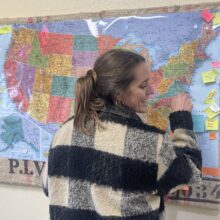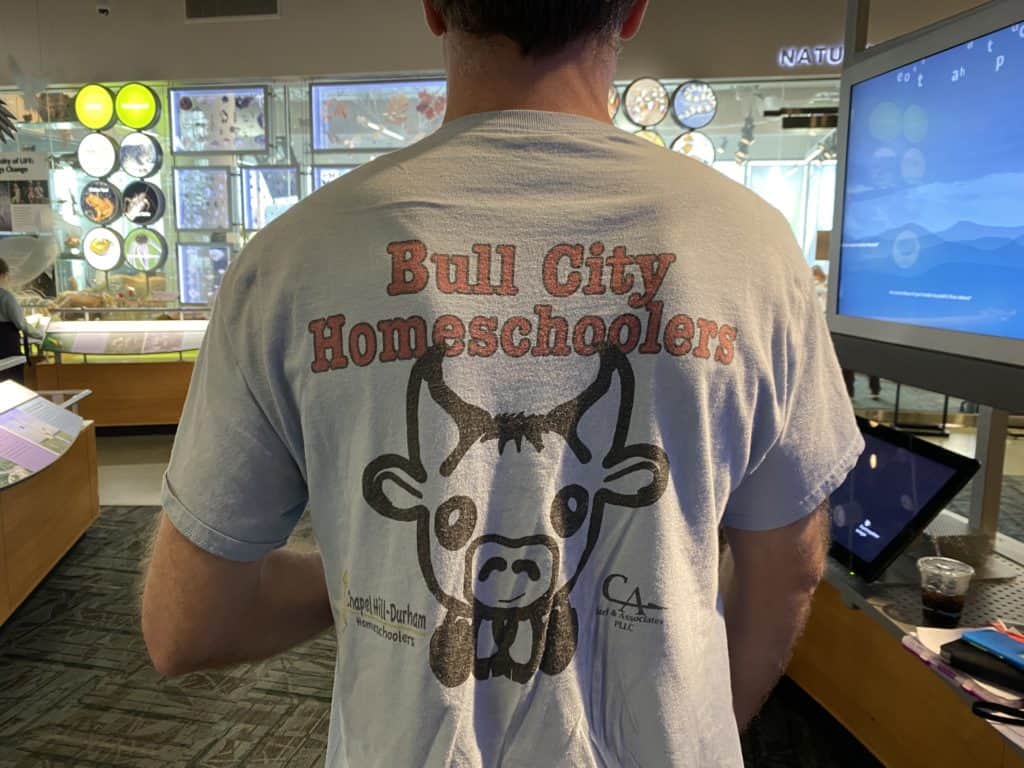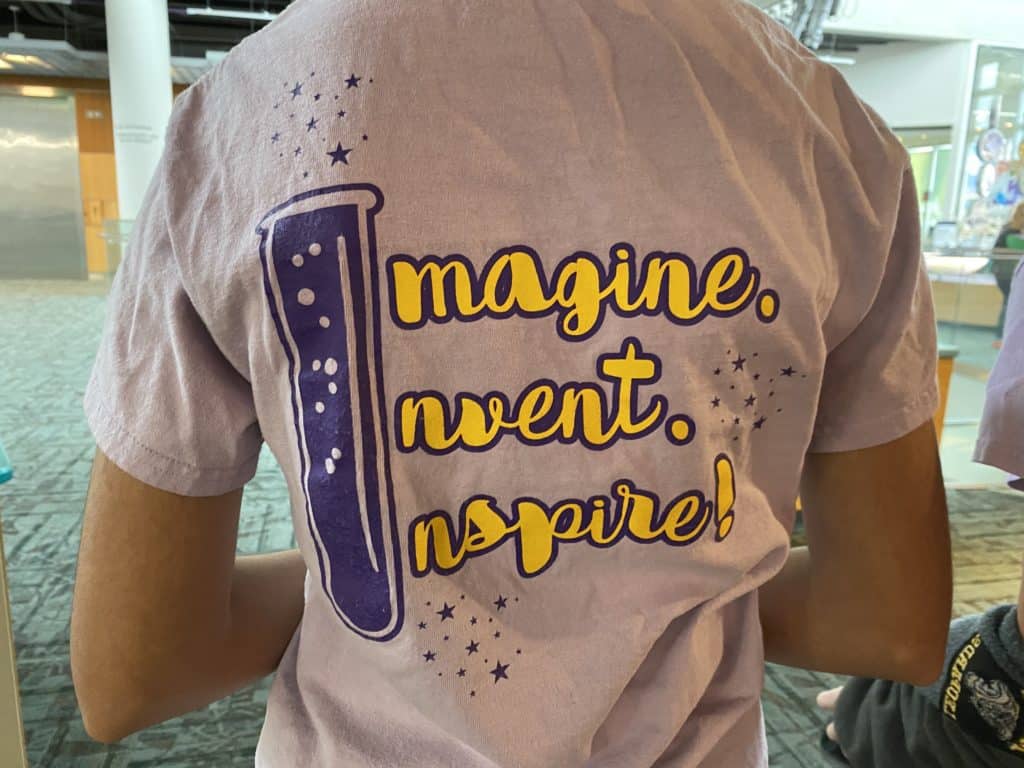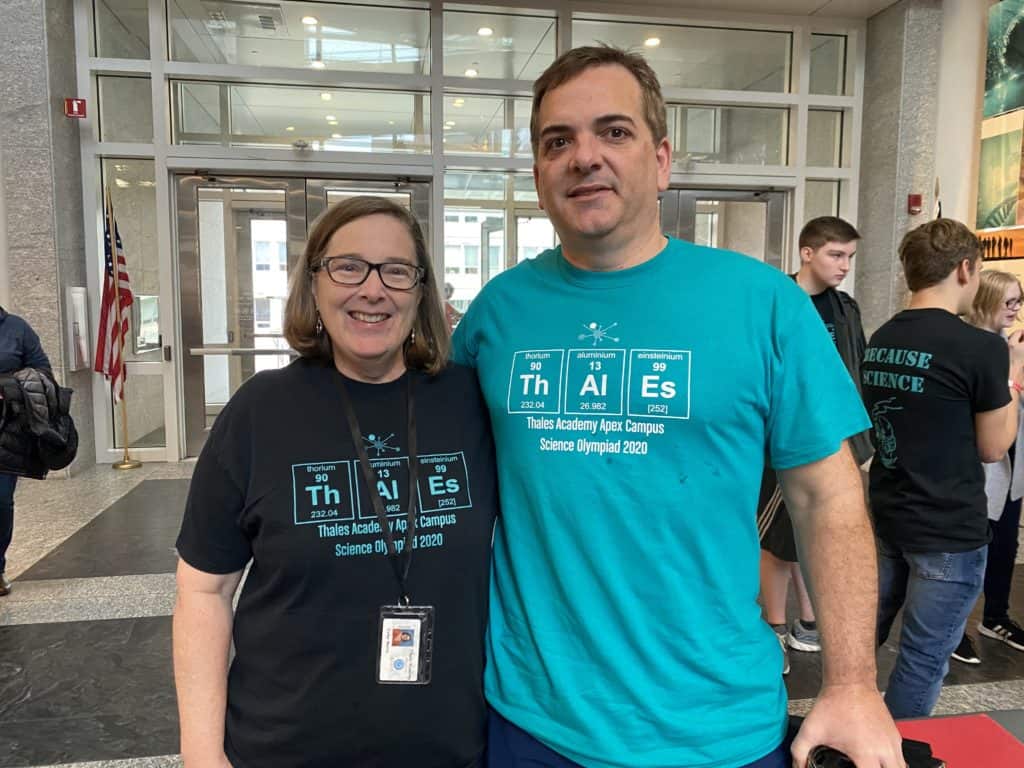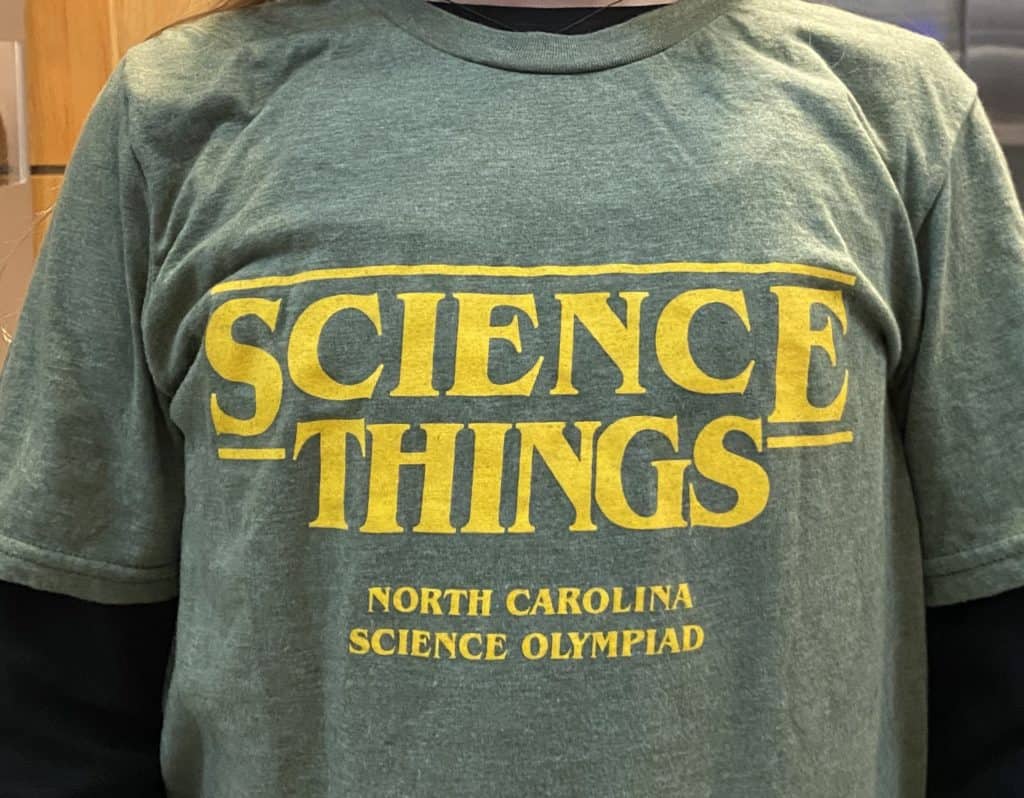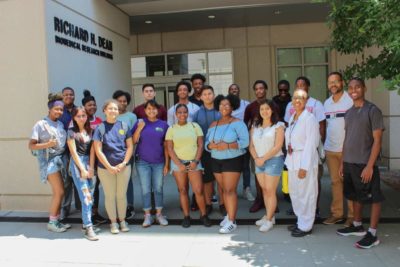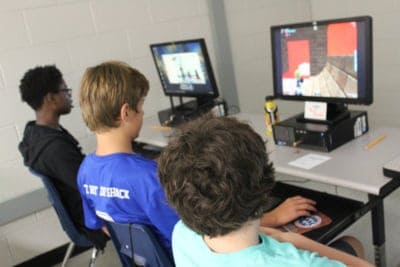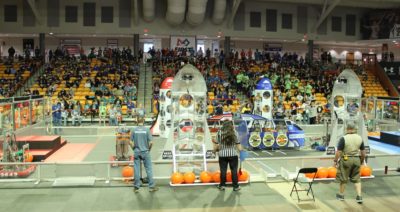Dylan and Mason of Heritage Middle School in Wake Forest are waiting patiently with their self-made rocket comprised of plastic tubing, masking tape, cardboard, an empty soft drink bottle, and wings. Just outside the doors of the North Carolina Museum of Natural Science, the North Carolina Science Olympiad (NCSO) team is setting up a makeshift launching pad for their Ping Pong Parachute event.
Atop the rocket is a piece of orange tissue paper held in place with a rubber band. Once the pumps for lift off are in place, Mason and Dylan walk to the launch pad and take off the rubber band. The orange tissue paper reveals itself to be a parachute with a small ping pong ball hanging below. Houston, we have lift off.
This is Dylan’s first year participating in the NCSO and Mason’s second. Dylan likes the hands-on experience of science and doing things up close. He is most looking forward to shooting off the rocket and his fossil event.
Mason likes the variety of different topics you can explore in science. His favorite is ornithology, and he is taking a test where he will have to identify birds by looking at pictures, listening to sounds, and using descriptions.
Rockets, fossils, and ornithology — these are just three of the 15 activities Olympiad teams could participate in last Saturday at the 2020 Science Olympiad Showcase in downtown Raleigh.
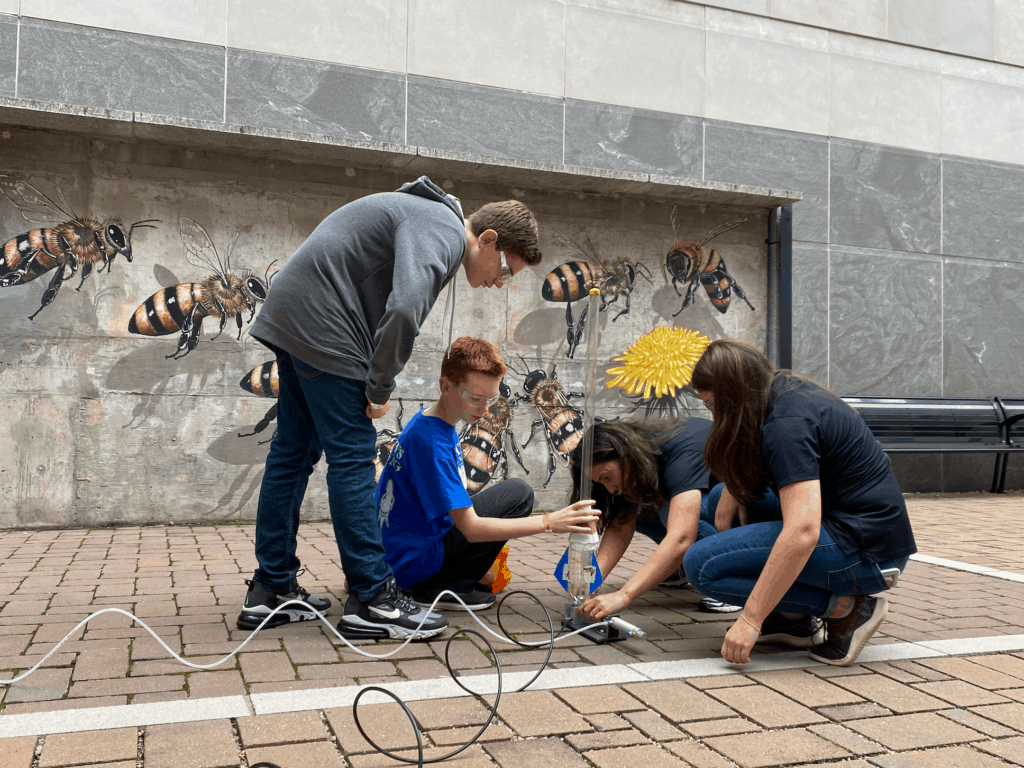
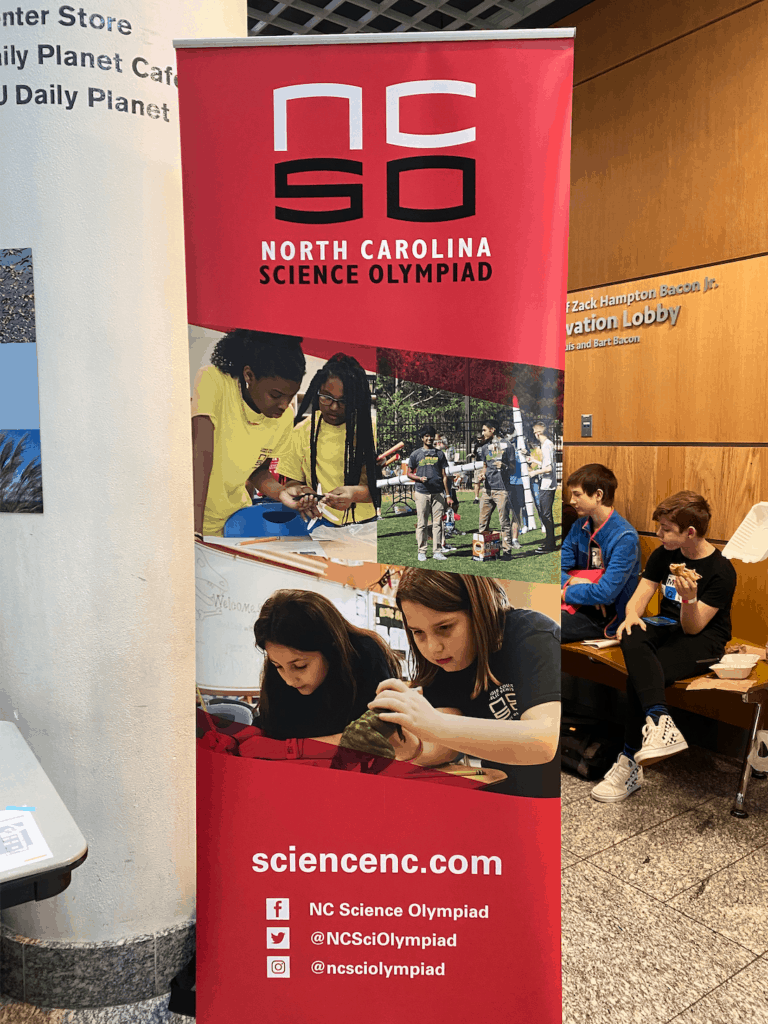
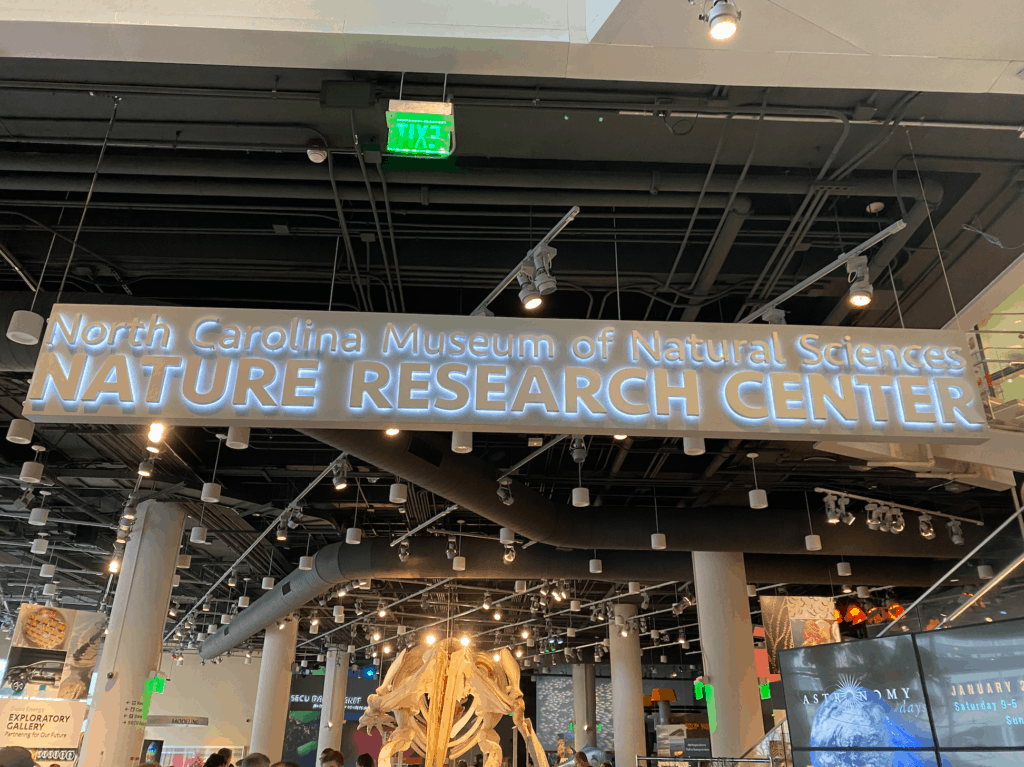
What is Science Olympiad?
The North Carolina Science Olympiad is a nonprofit organization that hosts interscholastic competitions in the subjects of biology, chemistry, engineering, earth science, environmental science, physics, and technology. The 36 tournaments scheduled for 2020 will take place on university, community college, and public school campuses and culminate in a state-wide competition this April.
While this showcase happened in downtown Raleigh and most of the teams who attended live within driving distance, participation is statewide. The Duke Energy Foundation works to bring rural teams in the mix, by connecting their coaches to training. Students from 85 counties joined in some Olympiad activity last year.
“The creativity and ingenuity students apply in NC Science Olympiad tournaments are the same skills our workforce needs to solve tomorrow’s energy challenges,” says Stephen De May, NC President, Duke Energy. “This program fosters the next generation of problem solvers ready to tackle complex problems with agile, innovative solutions.”
The first recorded Science Olympiad happened in Laurinburg, North Carolina some 46 years ago at St. Andrews Presbyterian College. Student teams from 15 North and South Carolina schools traveled to compete in four events with demonstrations and tests in each. The competition spread through academic circles, and soon other states were hosting similar tournaments. Flash forward to 2018: North Carolina had 980 K-12 teams representing over 18,000 students participate in NCSO activities.
2020 is an especially exceptional year for the NCSO chapter. After the state finals, teams who qualify for nationals won’t have to go too far. This year’s national Science Olympiad competition will be held May 13 – 16 at N.C. State.
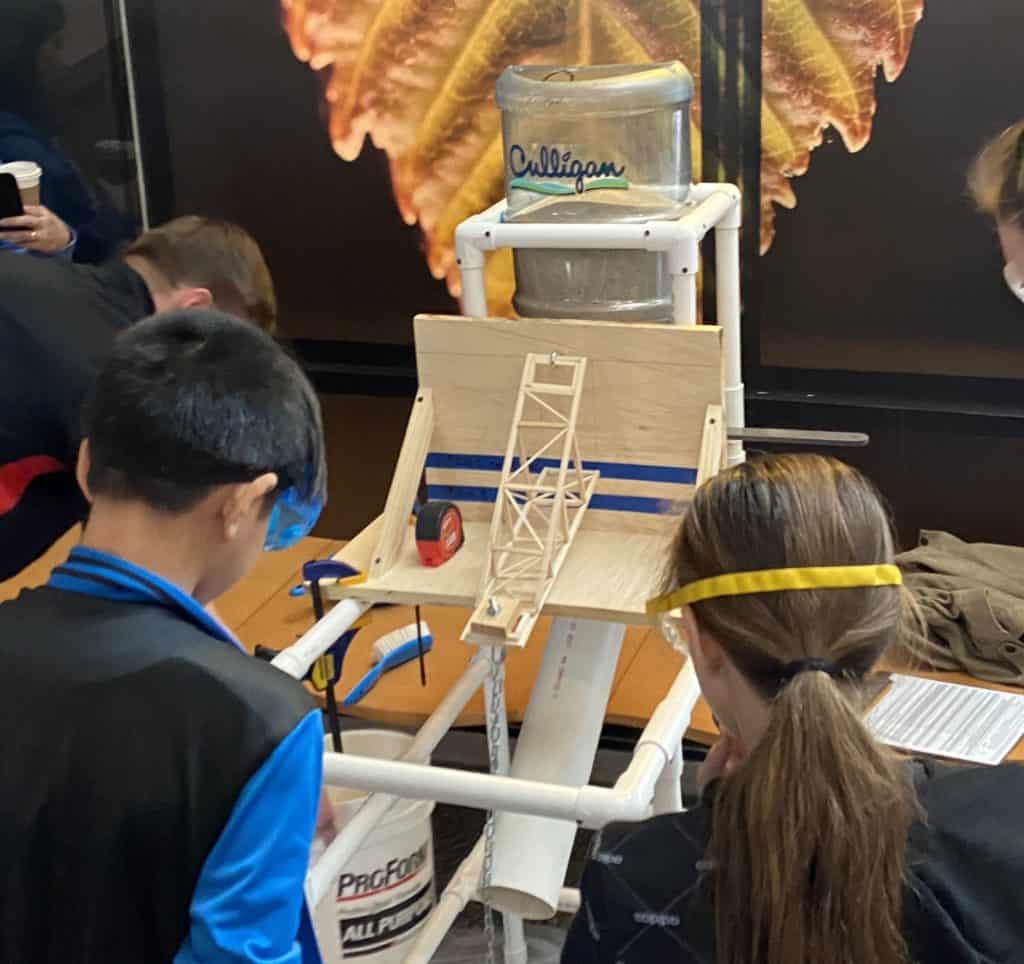
Science with a side of life skills
A typical competition day doesn’t just consist of students flexing their science muscles. The tournament encompasses a lot collaboration, time management, and life skills. While Saturday was just a showcase so students could test out things they’ve built and take practice exams to discover what they may need to learn more about, it helps set the tone that the real trials are right around the corner.
During tournament time, the schedule is packed. Events are happening all around a particular campus, and it’s likely that students aren’t familiar with the setting. Students have partners for different events, and those partners may be a 20 minute walk from where they need to be for the next event. Events may require a perfected boomilever for an experiment they’ll need to have in tow as they travel around campus. There are a lot of moving parts, and communication is key.
Esther Morris, an educator at Thales Academy in Apex, teaches chemistry, environmental science, and physics and is a coach for her school’s team. She says one of her favorite things about the Science Olympiad is how her students are learning teamwork and coordination.
“It’s problem-solving based, so that’s really good for critical thinking, and that’s the skill that everyone needs. I think I’d say its equal parts science and teamwork,” she said.
The showcase was just the beginning of this significant year for the NCSO. North Carolina has the second largest Olympiad program in the country. You can find their schedule of events here.
Duke Energy Foundation supports the work of EducationNC.

